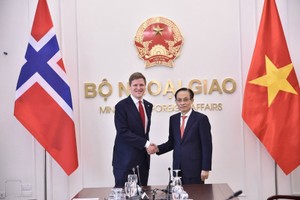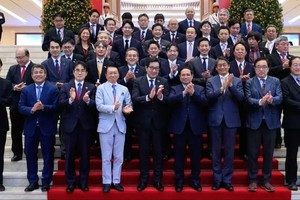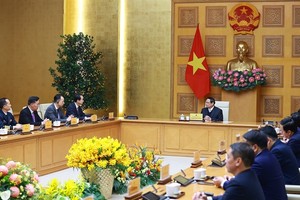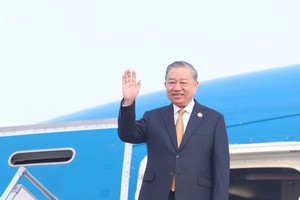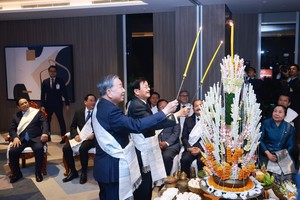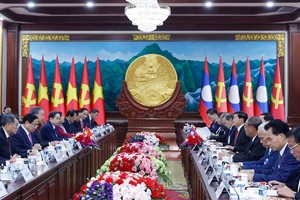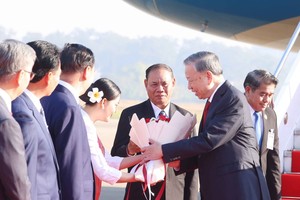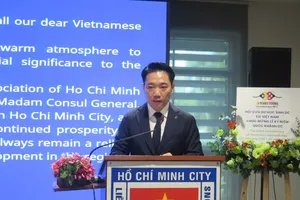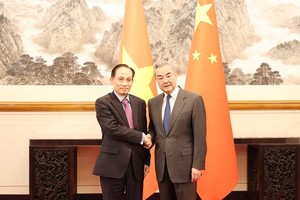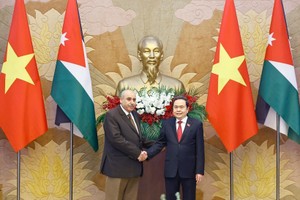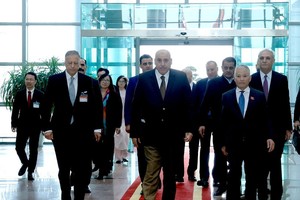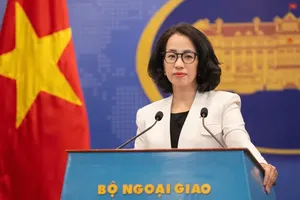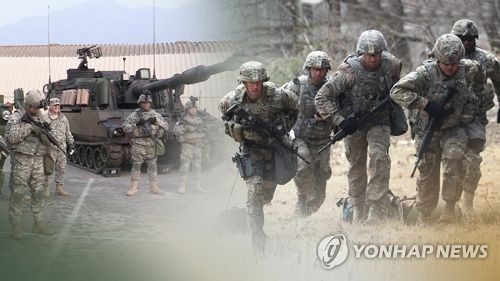
Shortly after his Singapore summit with North Korean leader Kim Jong-un last Tuesday, U.S. President Donald Trump unveiled his plan to stop "provocative, inappropriate and expensive" war games with the South, which Pyongyang has decried as an invasion rehearsal.
"Following close cooperation, South Korea and the U.S. decided to suspend all planning activities for the UFG, the defensive exercise slated for August," Seoul's defense ministry said in a text message sent to reporters.
"The South and the U.S. plan to continue consultations over additional measures," it added.
The ministry also said that there is no decision yet regarding other allied training exercises.
The U.S. Department of Defense also made the same announcement.
"Consistent with President Trump's commitment and in concert with our Republic of Korea ally, the United States military has suspended all planning for this August's defensive 'wargame' (Freedom Guardian)," Pentagon spokeswoman Dana White said in a statement.
The White House said that the combined exercises are expected to be "on pause" should the North deliver on its denuclearization commitment.
"Those conversations are ongoing at this point. As long as North Korea continues to act in good faith, then we expect those things to be on pause," White House Press Secretary Sarah Sanders told reporters.
Observers said that the suspension may induce Pyongyang to take such steps as demolishing its intercontinental ballistic missile engine testing site, or at least help build confidence with the communist regime.
"There was a request by the U.S. side to advance the time for announcing the decision to suspend the UFG," a senior Seoul official said on condition of anonymity.
"There appears to be a sign of the North moving to take corresponding measures (in response to the UFG suspension)," he added.
The UFG is a command post exercise based on computer simulated war games centering on a scenario of an all-out war with the North.
In 1954, the U.S.-led U.N. Command started the Focus Lens exercise. It was later combined with South Korea's Ulchi exercise, which was launched in the wake of a North Korean infiltration in 1968. The combined exercise, which was called the Ulchi Focus Lens (UFL), was renamed the UFG in 2008.
In 1990, the allies temporarily halted the UFL due to the U.S.' participation in the Gulf War.
"We can say that it is the second time that the allies have suspended the exercise," a senior ministry official said, declining to be named.
Amid dialogue with the North in 1992, Seoul and Washington also canceled their Team Spirit exercise, which resumed the following year.
Following Trump's remarks, speculation has surged that the allies might halt three major exercises: the UFG and springtime Key Resolve and Foal Eagle exercises.
The allies have long defended their regular exercises as purely defensive in nature, rejecting the North's persistent claim that the drills are aimed at preparing for an invasion of its territory.
Trump's suspension plan has stirred up heated debate. Supporters call it a good-will gesture to facilitate the North's denuclearization and naysayers a blow to the bilateral alliance.
Conservatives here have opposed the UFG suspension, though it is temporary, arguing that regular combined exercises are central to the decadeslong security alliance designed to counter threats from their common adversary.
Others, however, said that the suspension could create more opportunities to engage with the North and help expedite its nuclear disarmament.
